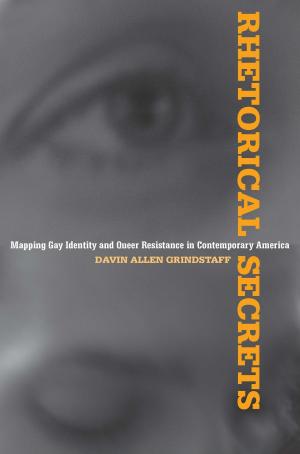| Author: | Alan Singer | ISBN: | 9781573668316 |
| Publisher: | University of Alabama Press | Publication: | March 7, 2012 |
| Imprint: | Fiction Collective 2 | Language: | English |
| Author: | Alan Singer |
| ISBN: | 9781573668316 |
| Publisher: | University of Alabama Press |
| Publication: | March 7, 2012 |
| Imprint: | Fiction Collective 2 |
| Language: | English |
Alan Singer’s riveting new novel, The Inquisitor’s Tongue, reimagines the Spanish Inquisition as a world in which spiritual horrors and acts of violence are the birth pangs of otherwise unimaginable identities.
The novel is the intersection of two narratives. The confession of Osvaldo Alonzo de Zamora, a miraculously gifted converso wine taster, is read aloud by a duplicitous priest of the Inquisition as an admonitory lesson to a suspected sinner. The competing narrative is the story of that sinner, another guilt-driven character, referred to only as the “Samaritan,” who curiously is held in the thrall of Osvaldo’s confession. The Samaritan bears the scars of his own history of violence and hidden identity.
In the wake of a final apocalypse the two narratives converge, bringing all of the characters together and eliciting the most damning revelation about the identity of the Inquisitor. Set amidst the religious and courtly spectacles of sixteenth-century Spain, The Inquisitor’s Tongue is linguistically adventurous, richly philosophical, deeply visceral, tantalizingly sensuous, and wickedly comic. It is a Goyaesque capricho on the follies of the will to identity.
Alan Singer’s riveting new novel, The Inquisitor’s Tongue, reimagines the Spanish Inquisition as a world in which spiritual horrors and acts of violence are the birth pangs of otherwise unimaginable identities.
The novel is the intersection of two narratives. The confession of Osvaldo Alonzo de Zamora, a miraculously gifted converso wine taster, is read aloud by a duplicitous priest of the Inquisition as an admonitory lesson to a suspected sinner. The competing narrative is the story of that sinner, another guilt-driven character, referred to only as the “Samaritan,” who curiously is held in the thrall of Osvaldo’s confession. The Samaritan bears the scars of his own history of violence and hidden identity.
In the wake of a final apocalypse the two narratives converge, bringing all of the characters together and eliciting the most damning revelation about the identity of the Inquisitor. Set amidst the religious and courtly spectacles of sixteenth-century Spain, The Inquisitor’s Tongue is linguistically adventurous, richly philosophical, deeply visceral, tantalizingly sensuous, and wickedly comic. It is a Goyaesque capricho on the follies of the will to identity.















